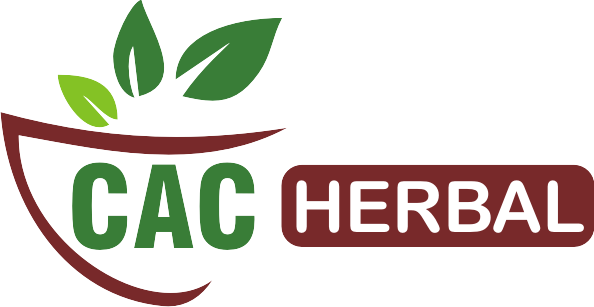OVERVIEW
Hemorrhoids are also known as piles. These are the swollen and dilated veins which are present in anus and lower part of rectum. When the veins are dilated inside the rectum, they are called external hemorrhoids. However, when present around the anus, it is called internal hemorrhoids. Piles have become very common now-a-days due to sedentary lifestyle. But there are various reasons for its occurrence. Rectal bleeding is one of the most common symptoms of it. In most of the cases, it goes on its own. Many people get relief by the use of home remedies and some lifestyle changes. However, various treatment options are available in the market.
CAUSES OF HEMORRHOIDS
The veins become stretched and swollen due to increased pressure in the lower part of rectum. Piles are similar to varicose veins. The common causes are:
- Straining during defecation
- Prolonged sitting
- Chronic constipation
- Increased body weight
- Pregnancy
- Chronic diarrhea
- Eating less fibrous diet
- Heavy weight lifting
DIFFERENT TYPES OF HEMORRHOIDS
Hemorrhoids are of different types depending on the location of swollen veins. Following are the different types of hemorrhoids:
- External piles: Dilated veins are present under the skin around the anus. They often cause itching and are painful.
- Internal piles: Swollen veins are present inside the rectum. Rectum is the lower part of digestive system that connects the large intestine to anus. They are usually painless and may cause bleeding.
- Prolapsed piles: When the dilated veins bulge out of the anus, then they are called prolapsed piles.
SYMPTOMS OF HEMORRHOIDS
The common signs and symptoms of hemorrhoids are:
- Intense itching around the anus
- Pain in the anus
- Swelling and inflammation near the anus
- Irritation
- Bleeding during passage of stool
- Pain during sitting
- Presence of purplish-pink bumps around the edge of anus
COMPLICATIONS OF HEMORRHOIDS
The piles are associated with the following complications:
- Anemia
- Infection of the concerned area
- Presence of skin tags
- Strangulated hemorrhoids – there is loss of blood supply to an internal hemorrhoid causing a strangulated piles. This is extremely painful.
- Blood clotting in a hemorrhoid – thrombosed hemorrhoid
PREVENTION OF HEMORRHOIDS
The prevention of hemorrhoids can be done some of the following steps:
- Eating high fiber diet
- Drink plenty of liquid
- Avoid straining during stool passing
- Defecate as soon as a person feels the urge
- Doing regular exercise as it helps in maintaining a balanced weight
- Avoid sitting for long time periods
DIAGNOSIS OF HEMORRHOIDS
The diagnosis of hemorrhoids involves digital examination of the patient. The doctor will insert a gloved and lubricated finger inside the anus and will look for any of the dilated veins. He will do a visual examination though proctosope also. The doctor will ask about the signs and symptoms of the disease. He will take his family history also.
CHANDIGARH AYURVED CENTER’S MEDICATIONS FOR THE TREATMENT OF HEMORRHOIDS
Here are some of the medications of Chandigarh Ayurved Center which are used for the treatment of hemorrhoids:
1. Piles Soft Tablet
It is herbo mineral and purely Ayurvedic formulation .Arsh care tablets are 100% natural & safe containing 650mg extracts of Reetha Chhilka purified in Cow’s milk.
The herb used for formulation of these tablets show antioxidant, anti-inflammatory, laxative properties. It makes your stool soft and helps prevent constipation.
It is effective against bleeding piles and reduce the pain while defecation. The main uses of arsh care tablet is in Bleeding piles, prevent constipation, act as laxative, Fissures, Fistula.
Recommended dosage: 2 tablets twice daily
2. Triphala Guggulu Tablet
Triphala Guggulu Tablet has been used in ayurvedic medicine since ages.
It is thought to support bowel health and aid digestion. As an antioxidant, it is used to detoxify the body and support the immune system.
It is known for its antibacterial, antioxidant, antiviral abilities.
It is prescribed for a wide range of ailments like promoting oral health, treating fatigue and gastric distress, pneumonia, constipation, vaginal infections and most importantly boost the immune system.
Recommended dosage: 2 tablets twice daily
3. Panchsakar Churna
This is an ayurvedic remedy that is prepared from ingredients like Shunti, Haritaki, Pippali, Trivrit, and Sauvarchala lavana.
It mainly acts as a Vatakaphahara. Regular use of this churna gives effective result in loss of appetite, bloating related to piles patient. It also helps in relieving the abdominal pain and constipation very easily.
Recommended Dosage: 1 teaspoonful daily with warm water at bedtime
4. Triphala Syrup
As the name suggests Triphala means (Haritaki, Bibhitaki, and Amalaki) herbs are used for syrup formation.
Each fruit is thought to positively impact on the body’s three doshas.
This is an amazing syrup that cleans your bowel naturally and give relieve from chronic constipation related to the piles patient. It also helps in healing the inflammation of fistula- in – ano.
Recommended Dosage: 2 teaspoonful of this syrup twice a daily with normal water
